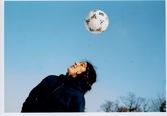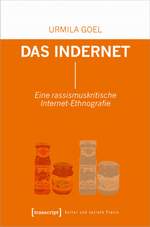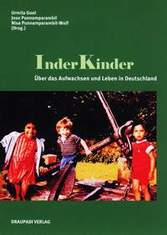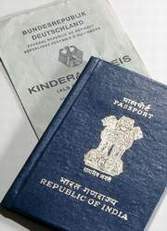Samstag, 11. Februar 2006
The appropriation of 'authentic' researchers
urmila, 22:52h
At the moment some researchers are much demanded in Germany. These are 'authentic' researchers who belong to an ethnic minority, to be more precise who have a 'Muslim' background. And who work on 'Muslim' migrants in Germany. But it is not enough to do that. There are many who do and who do not get any attention. The public attention is guaranteed as soon as these 'authentic' researchers locate problems among the 'Muslim' migrants and - this is important - argue that the causes for these are to be found in their religion, in 'Islam'. This is much appreciated by the majority 'Germans', finally they have 'authentic' evidence for their islamophobia.
The other researchers, who belong to an ehnic minority, and who offer other explanations for problems, or who even worse do not consider issues liked 'forced marriages' or 'honour killings' as the most important fields for research, they are not 'authentic'. They are just envious of the 'authentic' ones, and in case of doubt they are also responsible for the problems.
Becoming an 'authentic' researcher would be a good career chance. But I doubt that I have the necessary qualifications.
The other researchers, who belong to an ehnic minority, and who offer other explanations for problems, or who even worse do not consider issues liked 'forced marriages' or 'honour killings' as the most important fields for research, they are not 'authentic'. They are just envious of the 'authentic' ones, and in case of doubt they are also responsible for the problems.
Becoming an 'authentic' researcher would be a good career chance. But I doubt that I have the necessary qualifications.
... comment
kyla,
Sonntag, 12. Februar 2006, 19:50
whose authentic(ity)?
I was wondering as I read this: who decides the authenticity of these scholars and writers? Is it the academic world? the journalistic world? readers? Because I can't imagine that the academic world is that simple-minded, but maybe I'm hoping for too much.
Or maybe a better question would be: where can one find, in German discourses, a more complex reading of Islam, Muslims and the "Islamic world"? Where do they ask other questions and talk about other issues? (Issues like: worship, law, love, ethics, for example.)
Or maybe a better question would be: where can one find, in German discourses, a more complex reading of Islam, Muslims and the "Islamic world"? Where do they ask other questions and talk about other issues? (Issues like: worship, law, love, ethics, for example.)
... link
urmila,
Sonntag, 12. Februar 2006, 20:10
I am not necessarily that hopeful about the academic world. But in this case it are actually the journalists, politicians and NGOs, who give the attribute 'authentic' to authors and activists like Necla Kelek and Seyran Ates.
There are, there must be also other ('real') scholars of Islamic studies who deal with other aspects of 'Islam'. But that is not a matter which is publicly discussed much at the moment. It is not of interest.
And I actually do not know so much about that either. My field is rather that of migration and othering. There are lots of academics also many who could claim to be 'authentic', who take a different approach to that topic. They look at the lifes and experiences of 'migrants' and 'other Germans', they analyse othering processes and their effects. They do not take 'Islam' as an explanation for all problems, but rather analyse which roles religion has in these processes. One of these academics is Werner Schiffauer at whose department I am working, others have signed a petition against this construction of 'authenticity'.
Necla Kelek and the others have gained the status of 'authenticity' because what they say fits so well the islamophobic mainstream.
There are, there must be also other ('real') scholars of Islamic studies who deal with other aspects of 'Islam'. But that is not a matter which is publicly discussed much at the moment. It is not of interest.
And I actually do not know so much about that either. My field is rather that of migration and othering. There are lots of academics also many who could claim to be 'authentic', who take a different approach to that topic. They look at the lifes and experiences of 'migrants' and 'other Germans', they analyse othering processes and their effects. They do not take 'Islam' as an explanation for all problems, but rather analyse which roles religion has in these processes. One of these academics is Werner Schiffauer at whose department I am working, others have signed a petition against this construction of 'authenticity'.
Necla Kelek and the others have gained the status of 'authenticity' because what they say fits so well the islamophobic mainstream.
... link
... comment
 Foto: © Anke Illing
Foto: © Anke Illing


